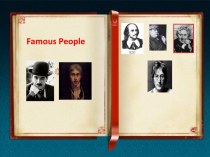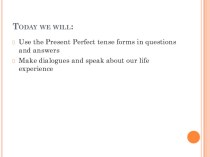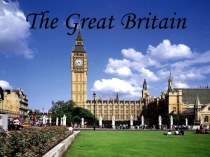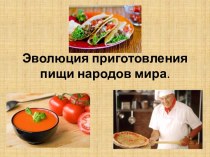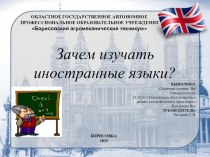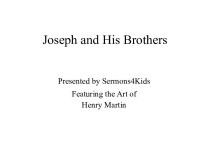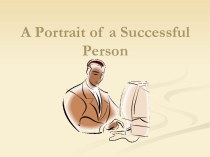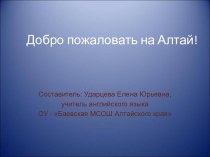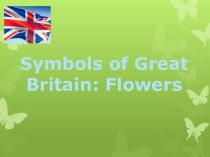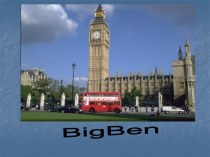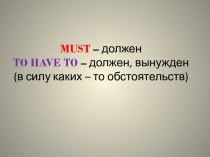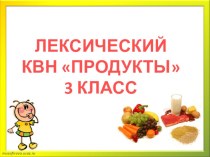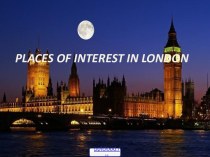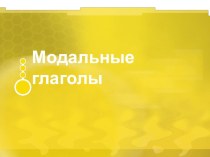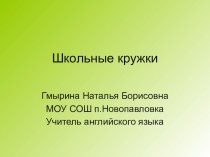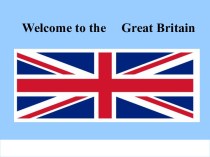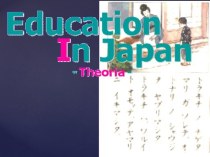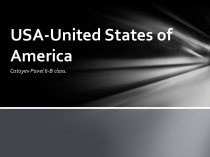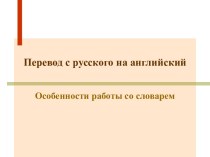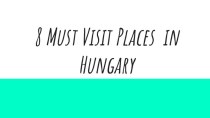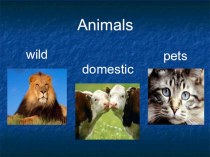- Главная
- Разное
- Бизнес и предпринимательство
- Образование
- Развлечения
- Государство
- Спорт
- Графика
- Культурология
- Еда и кулинария
- Лингвистика
- Религиоведение
- Черчение
- Физкультура
- ИЗО
- Психология
- Социология
- Английский язык
- Астрономия
- Алгебра
- Биология
- География
- Геометрия
- Детские презентации
- Информатика
- История
- Литература
- Маркетинг
- Математика
- Медицина
- Менеджмент
- Музыка
- МХК
- Немецкий язык
- ОБЖ
- Обществознание
- Окружающий мир
- Педагогика
- Русский язык
- Технология
- Физика
- Философия
- Химия
- Шаблоны, картинки для презентаций
- Экология
- Экономика
- Юриспруденция
Что такое findslide.org?
FindSlide.org - это сайт презентаций, докладов, шаблонов в формате PowerPoint.
Обратная связь
Email: Нажмите что бы посмотреть
Презентация на тему по английскому языку на тему История и традиции празднования Рождества в Англии
Содержание
- 2. Two hundred years ago British Christmas was
- 3. When Queen Victoria and her German husband
- 4. However, they kept some pagan traditionse.g. They decorated their homes with garlands and greenery.
- 5. Christmas treeswere decorated with candles, toffees and gingerbreads.
- 6. Christmas candles People believed that their light helped him to forget the darkness of winter.
- 7. The baubles appeared after 1870 (they believe that baubles protected them from the evil eye).
- 8. Christmas tree Most families decorate their houses with
- 9. Christmas trees replaced a more British custom
- 10. Victoria and Albert started more Christmas customspresents giving
- 11. Christmas cards giving The very first Christmas card
- 12. Christmas cardsThe first Christmas card was made
- 13. Christmas cardsare arranged on mantelpieces, shelves, tables
- 14. The way Christmas dishes are now served
- 15. Before the 17th century the main Christmas
- 16. The Victorians made popular Christmas pudding
- 17. During the rule of Oliver Cromwell (1599-1658)eating
- 18. British Christmas is a family celebration
- 19. The symbols of Christmas:Food & drinkPartiesTelevision and
- 20. Christmas is celebrated during three days:Christmas Eve Christmas Day Boxing Day
- 21. Boxing DayThe first weekday after Christmas is
- 22. On Christmas Evechildren hang their stockings over
- 23. On Christmas Eve everything is rush
- 24. Most big cities are decorated with colourful lights across the streets and enormous Christmas trees.
- 25. Christmas foodLunch is the most important point
- 26. In the houses there is a great
- 27. Скачать презентацию
- 28. Похожие презентации
Two hundred years ago British Christmas was totally different from Christmas we know todayIt was based on old pagan traditions and was mainly for adults. It was full of mischief and alcohol.
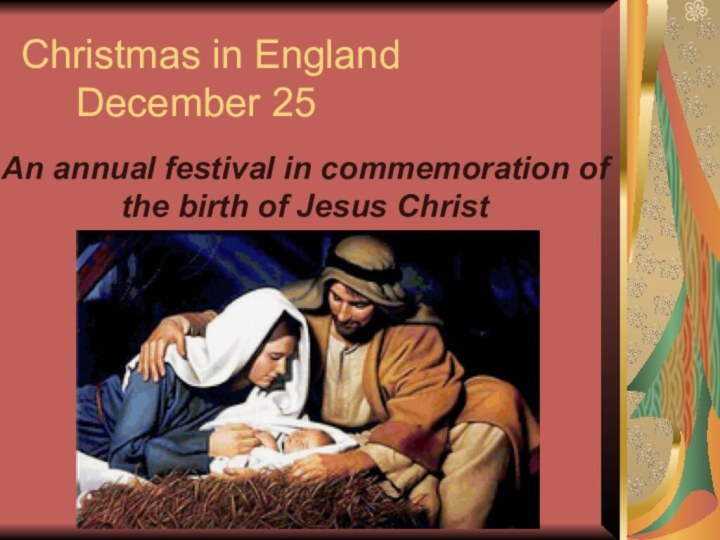
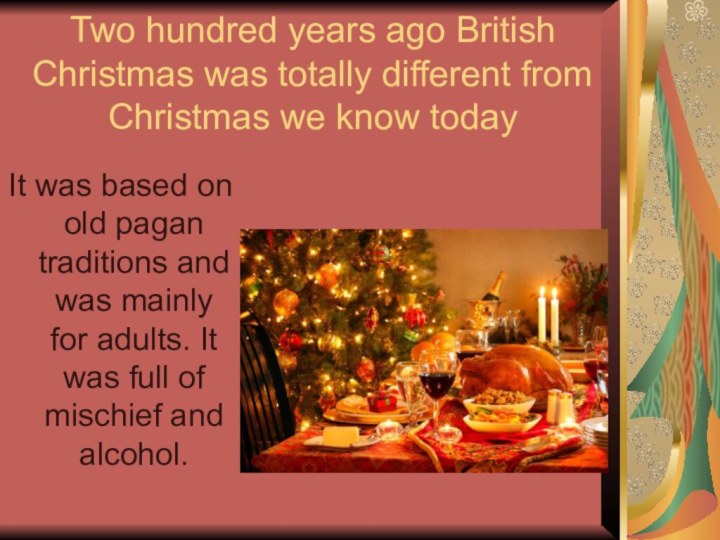
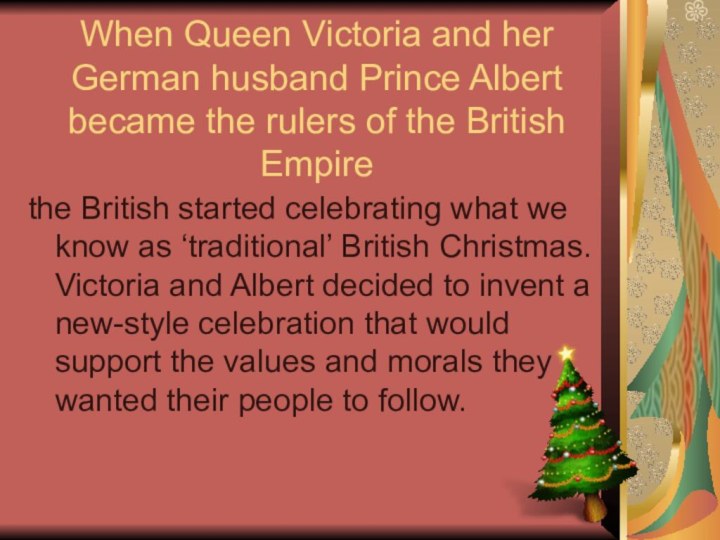
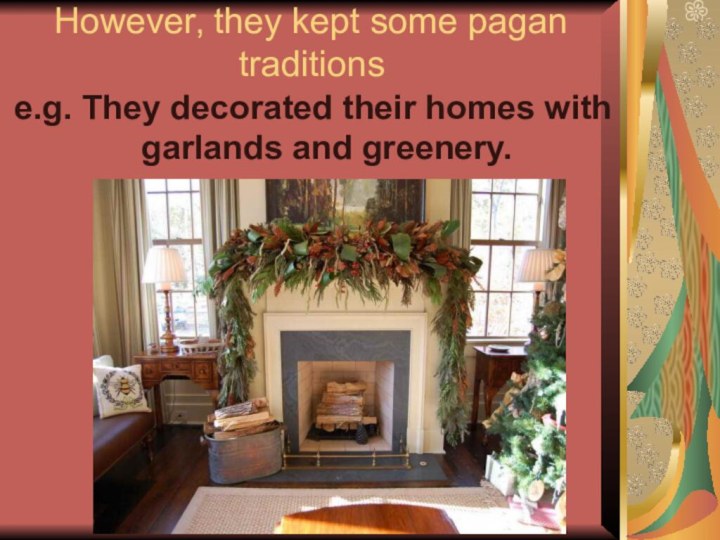
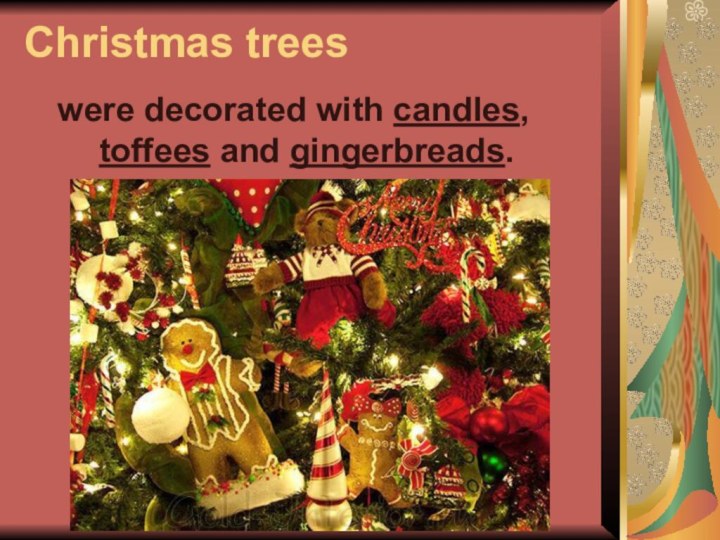
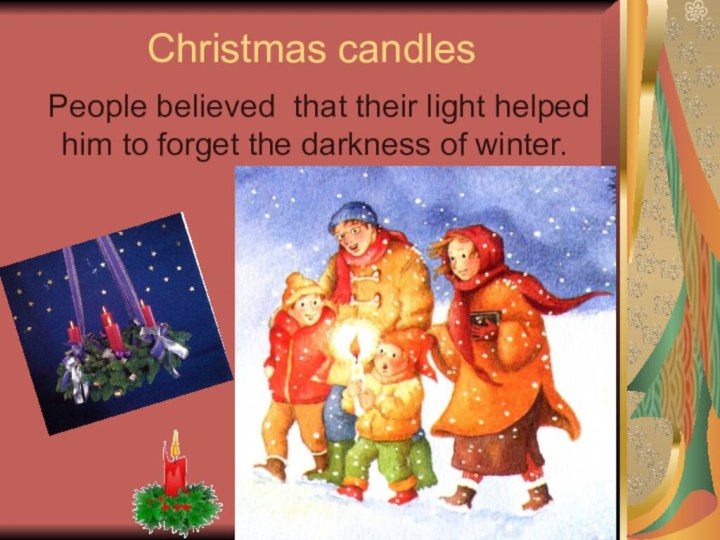
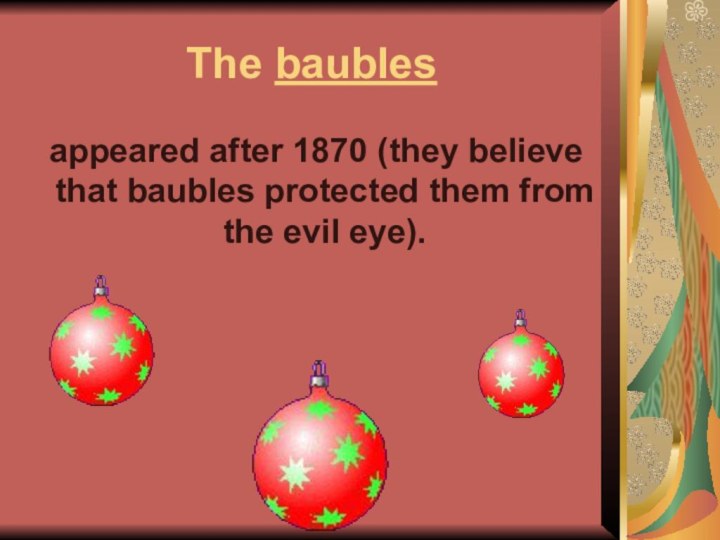
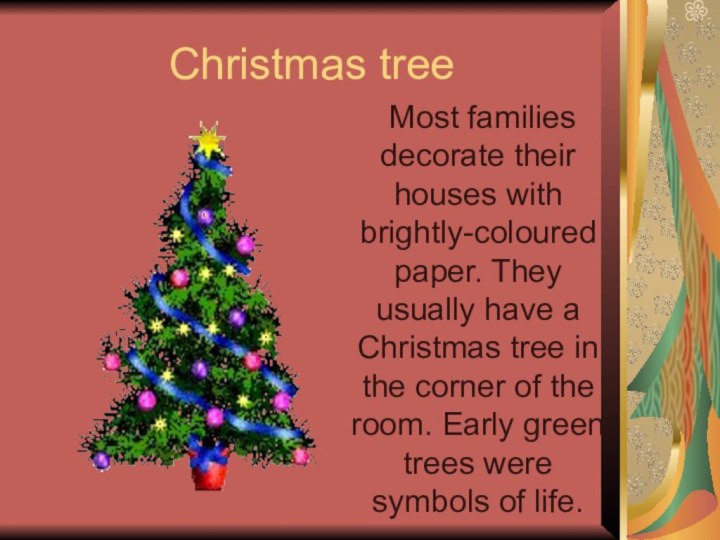
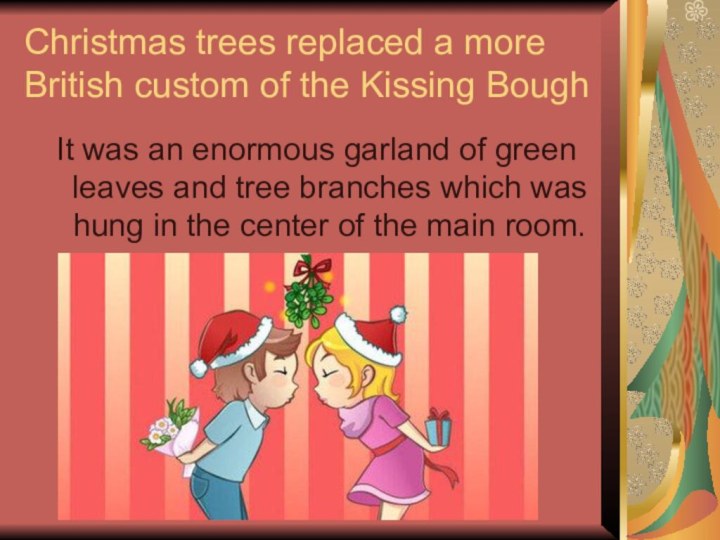

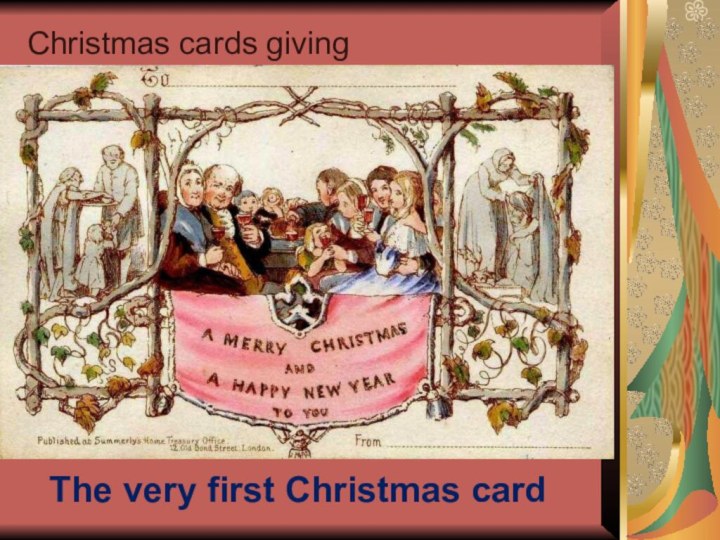
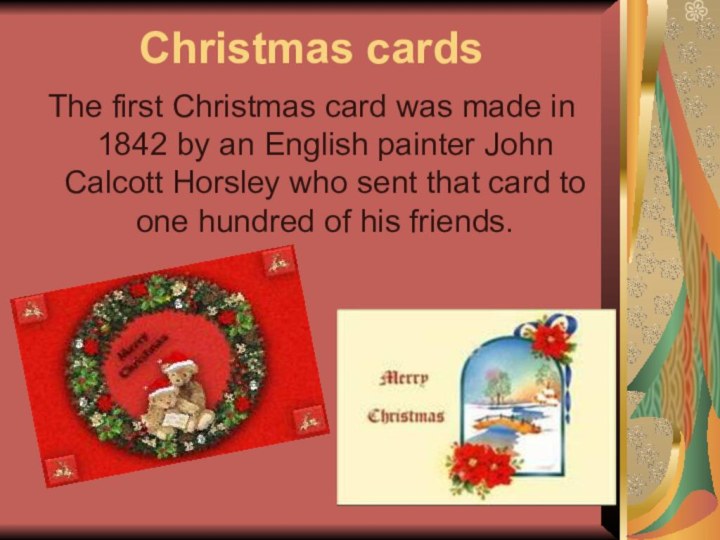
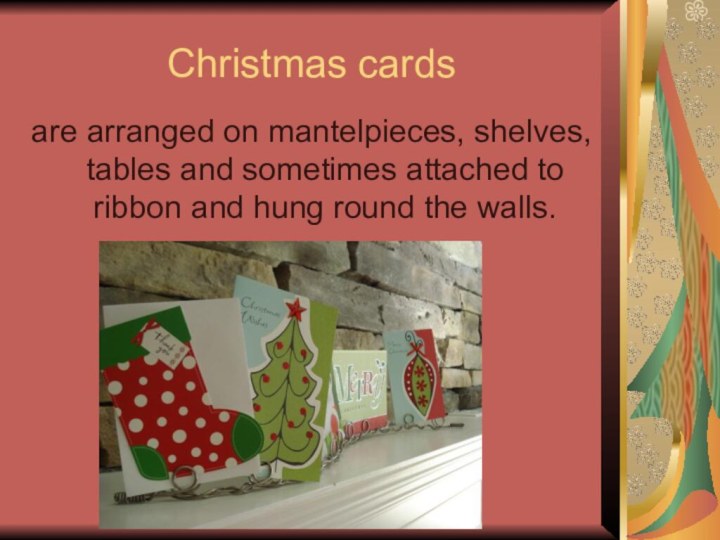
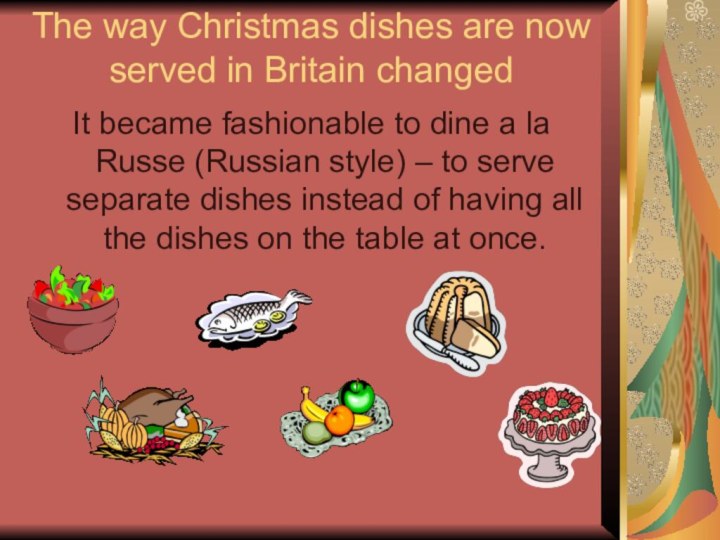
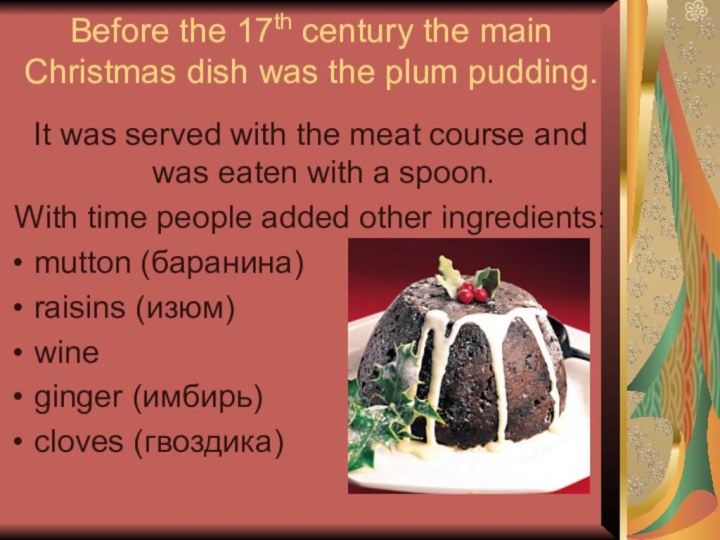
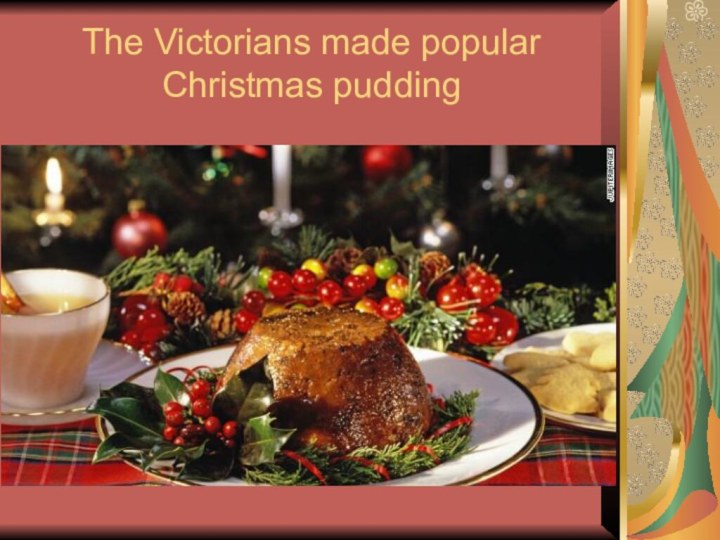
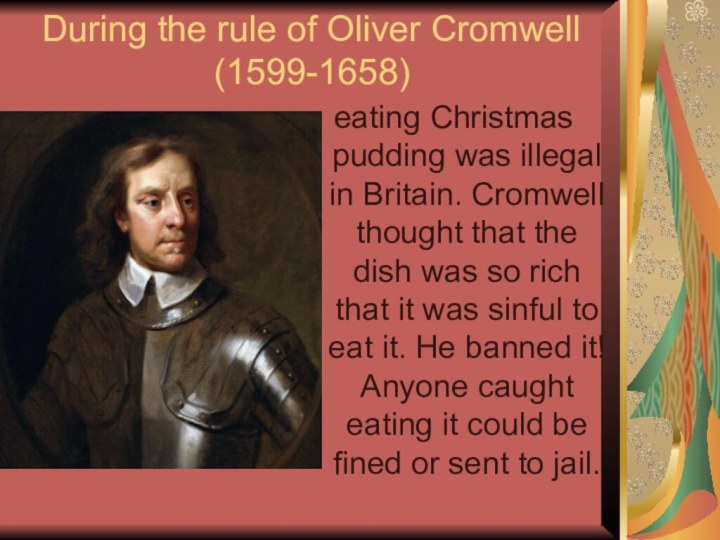
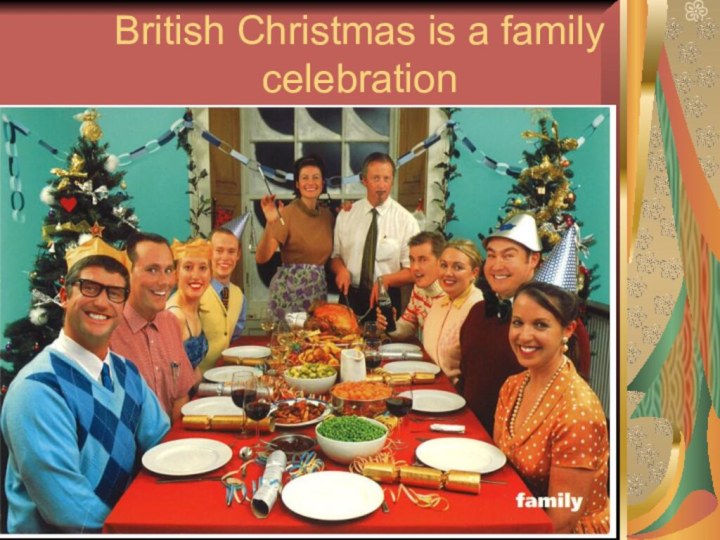
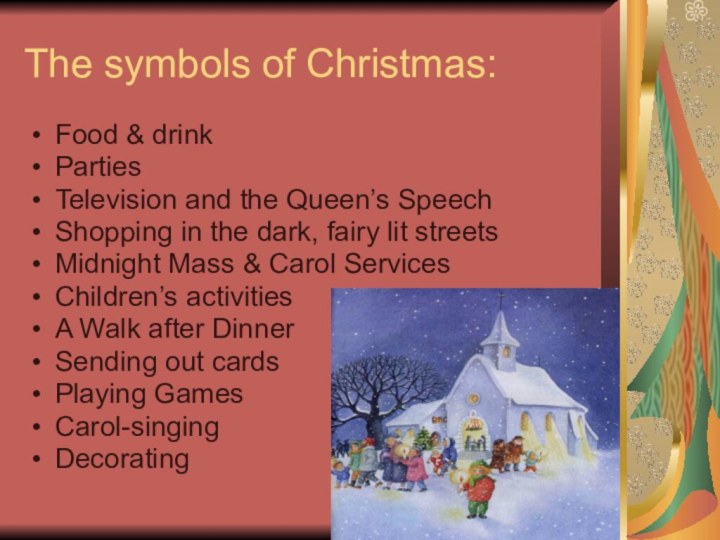
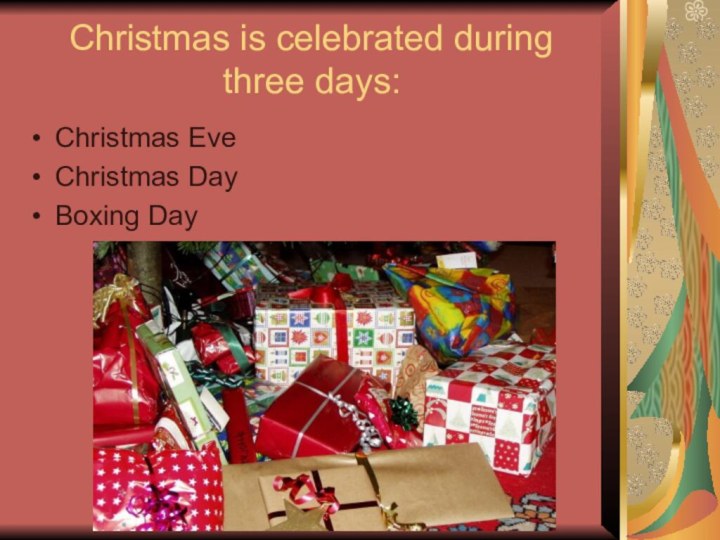
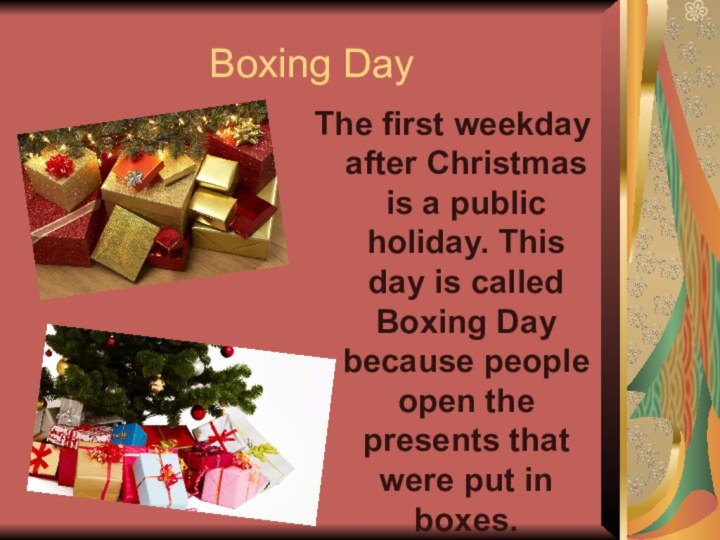
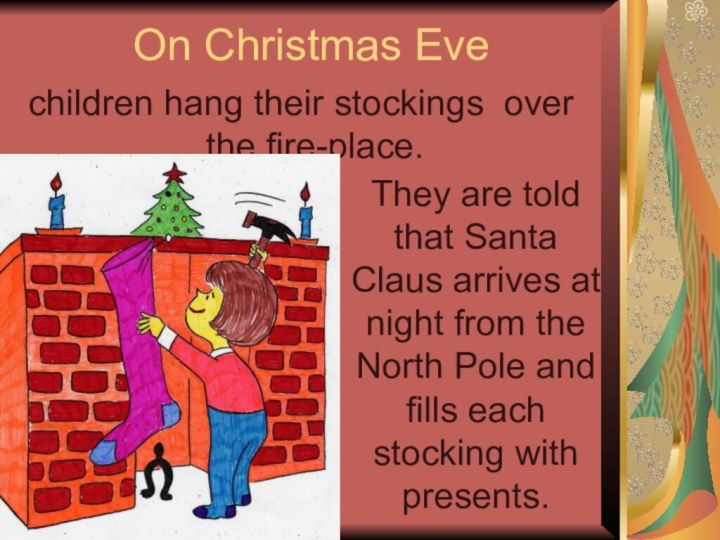
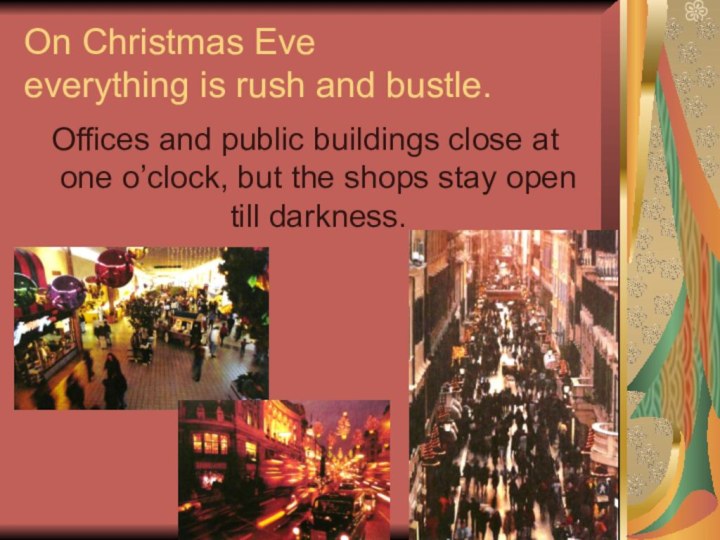
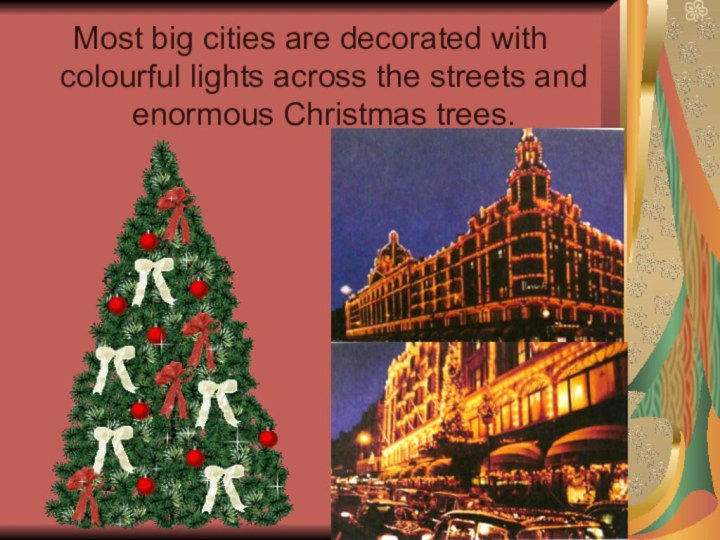
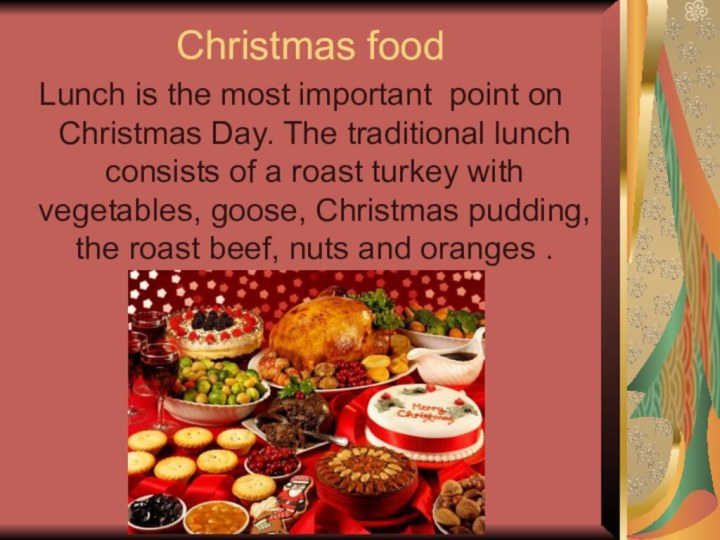
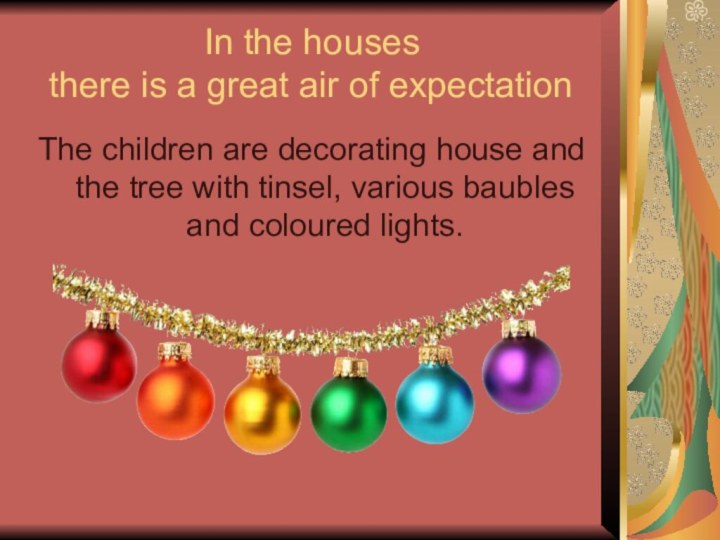
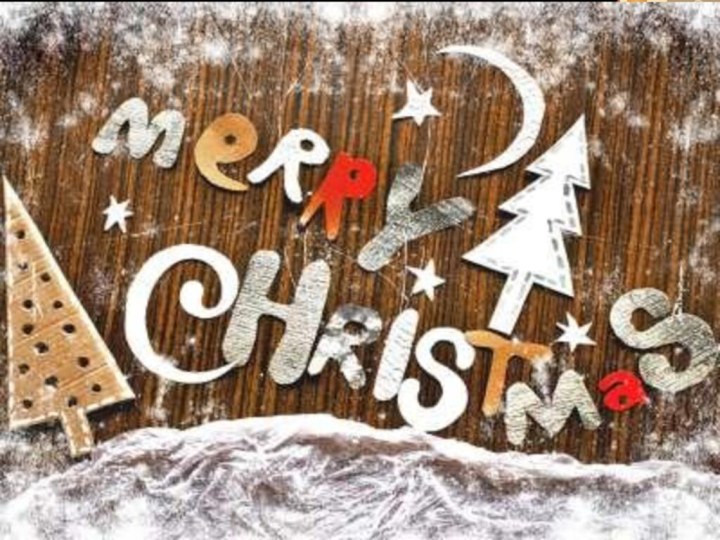
Слайд 2 Two hundred years ago British Christmas was totally
different from Christmas we know today
old pagan traditions and was mainly for adults. It was full of mischief and alcohol.Слайд 3 When Queen Victoria and her German husband Prince
Albert became the rulers of the British Empire
the British
started celebrating what we know as ‘traditional’ British Christmas. Victoria and Albert decided to invent a new-style celebration that would support the values and morals they wanted their people to follow.
Слайд 4
However, they kept some pagan traditions
e.g. They decorated
their homes with garlands and greenery.
Слайд 6
Christmas candles
People believed that their light helped him
to forget the darkness of winter.
Слайд 7
The baubles
appeared after 1870 (they believe that
baubles protected them from the evil eye).
Слайд 8
Christmas tree
Most families decorate their houses with brightly-coloured
paper. They usually have a Christmas tree in the
corner of the room. Early green trees were symbols of life.Слайд 9 Christmas trees replaced a more British custom of
the Kissing Bough
It was an enormous garland of green
leaves and tree branches which was hung in the center of the main room.
Слайд 12
Christmas cards
The first Christmas card was made in
1842 by an English painter John Calcott Horsley who
sent that card to one hundred of his friends.
Слайд 13
Christmas cards
are arranged on mantelpieces, shelves, tables and
sometimes attached to ribbon and hung round the walls.
Слайд 14 The way Christmas dishes are now served in
Britain changed
It became fashionable to dine a la Russe
(Russian style) – to serve separate dishes instead of having all the dishes on the table at once. Слайд 15 Before the 17th century the main Christmas dish
was the plum pudding.
It was served with the meat
course and was eaten with a spoon. With time people added other ingredients:
mutton (баранина)
raisins (изюм)
wine
ginger (имбирь)
cloves (гвоздика)
Слайд 17
During the rule of Oliver Cromwell
(1599-1658)
eating Christmas pudding
was illegal in Britain. Cromwell thought that the dish
was so rich that it was sinful to eat it. He banned it! Anyone caught eating it could be fined or sent to jail.
Слайд 19
The symbols of Christmas:
Food & drink
Parties
Television and the
Queen’s Speech
Shopping in the dark, fairy lit streets
Midnight Mass
& Carol Services Children’s activities
A Walk after Dinner
Sending out cards
Playing Games
Carol-singing
Decorating
